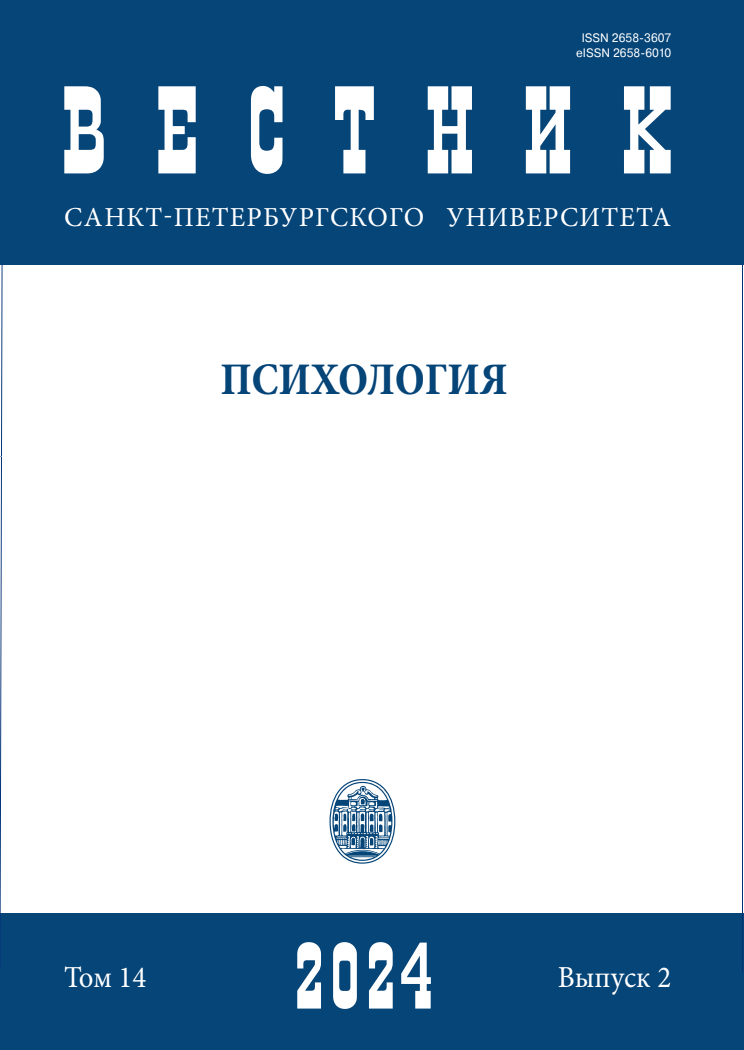Stress with regards to the COVID-19 pandemic during pregnancy and postpartum
DOI:
https://doi.org/10.21638/spbu16.2024.206Abstract
The results of a longitudinal study of women during pregnancy and in the first year of a child's life are presented. Pandemic-related stress, PTSD symptoms, mental health, attitude towards the child, coping strategies, birth information, interaction characteristics were studied. Sample: 360 women during pregnancy from 18 to 44 years (mean age 30.7), gestational age 8-40 (mean 31) weeks; of these, 98 dyads - after the birth of a child. Results: the main mental health problems are withdrawal, avoidance, depression; anxiety is moderate. The main stress factors are concerns about changes in the healthcare system, the political situation, fear for the health of relatives and the child. After the birth of a child, there is a decrease in mental health problems, stress levels. Mental health indicators of a pregnant woman have a significant impact on similar indicators after the birth of a child. Pregnant women view their attitude towards pregnancy and the child on a high level, but the projective method revealed a weak formation of the image of motherhood, and an expert assessment of interaction with the child in the first year of life shows low sensitivity to the needs of the child. Attitude towards a child is correlated to mental health both during pregnancy and during the first year of child’s life. Risk groups are women with unplanned pregnancy and planned caesarean section. Conclusion: help during pregnancy should be comprehensive, psychological counseling should be included into the system of obstetric and gynecological and pediatric care, with early diagnosis of mental health problems; important to help women form adequate attitude to motherhood, constructive stress coping strategies.
Keywords:
COVID-19, pregnancy, delivery, postpartum, mental health, infancy, child development, coping, dyadic interaction, attitude to a child
Downloads
References
References
Downloads
Published
How to Cite
Issue
Section
License
Articles of "Vestnik of Saint Petersburg University. Psychology" are open access distributed under the terms of the License Agreement with Saint Petersburg State University, which permits to the authors unrestricted distribution and self-archiving free of charge.




